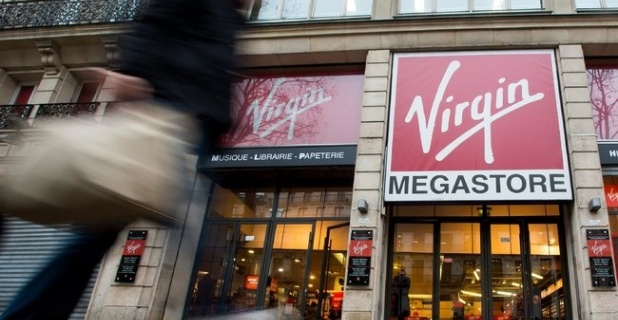Across Europe, music is once again fueling protests, strikes and sit-ins. In a twist on the 1960s, it is the music sellers, rather than the listeners, who are up in arms. Employees of two HMV record stores in Limerick, Ireland, started sit-ins last week, demanding unpaid wages after the chain, based in Britain, filed for bankruptcy protection.
In France, workers at Virgin Megastore music and video shops went on strike this month after that chain, too, was declared insolvent and placed under a court-appointed administrator, threatening the stores with closure.
In Italy, workers at Fnac, which sells compact discs, DVDs, books and consumer electronics, took similar action last autumn after the Italian division of the French chain was sold to private equity investors, who are expected to shut stores and cut jobs.
No match for online music providers
Faced with the possible demise of a broad swath of its retail infrastructure for music, movies and other media, Europe is, in some ways, merely catching up with the United States — and with the technological and economic forces that have swept through the entertainment industry. Tower Records, the U.S. equivalent of HMV or Virgin Megastore, shut down in 2006, unable to compete with online retailers like Amazon.com and iTunes, from Apple, as well as digital pirates. Tower Records in Japan, which split from the U.S. company about 10 years ago, continues to operate.
But the threat to bricks-and-mortar shops selling music and movies is being seen as a broader economic and cultural calamity for Europe. Not only are thousands of jobs at stake; these chains, European owned, also play important roles in disseminating locally produced media. Waiting in the wings to replace them are mostly American-owned Internet giants, whose growing presence and smaller contributions to European fiscal coffers worry policy makers.
Unfair competition?
“The physical cultural businesses are threatened today because of the emergence of large online sites that completely avoid fair competition, since they do not pay the same taxes as others, being based outside France,” the French culture minister, Aurélie Filippetti, said in a radio interview with Europe 1.
In addition to the potential economic fallout, there is nostalgia. HMV, for example, is an iconic British retailer, in business since 1921, when the composer Edward Elgar attended the opening of the first shop in London. HMV stands for “His Master’s Voice,” the title of a painting by Francis Barraud that became the basis for a widely used music industry trademark, in which a dog is mesmerized by the sound emanating from a phonograph.
The owner of that first store, called the Gramophone Co., was a precursor to the British record company EMI, which recently passed into foreign hands when it was sold to Universal Music Group, controlled by the French media conglomerate Vivendi.
“People feel very emotional about all this. They feel very sad about it,” said Neil Saunders, an analyst at Conlumino, a retail consulting firm in London. “They say, ‘HMV is a part of my youth.’ And then you ask them when they last went into an HMV store, and they say, ‘Um, three years ago?”’
Europe catches up with the United States
Digital music is making significant inroads in Europe, several years after it did so in the United States, where it already accounts for more than half the market. In Britain, digital outlets accounted for 32 percent of music industry revenue of $1.4 billion in 2011, according to the International Federation of the Phonographic Industry, up from 19 percent two years earlier.
Counting compact discs sold by Internet mail-order businesses like Amazon.com, as well as digital services like iTunes, online distribution accounted for 73.5 percent of music and video sales in Britain last year, according to Conlumino. That could rise to 90 percent by the end of 2015, the firm forecasts.
The problems at HMV, Virgin and Fnac have heightened the scrutiny of online retailers like Amazon, with politicians in France and Britain accusing the company of unfair competition because of the strategies it employs to reduce its taxes in Europe. Amazon routes its European sales through Luxembourg, where corporate taxes are lower than in France or Britain.





